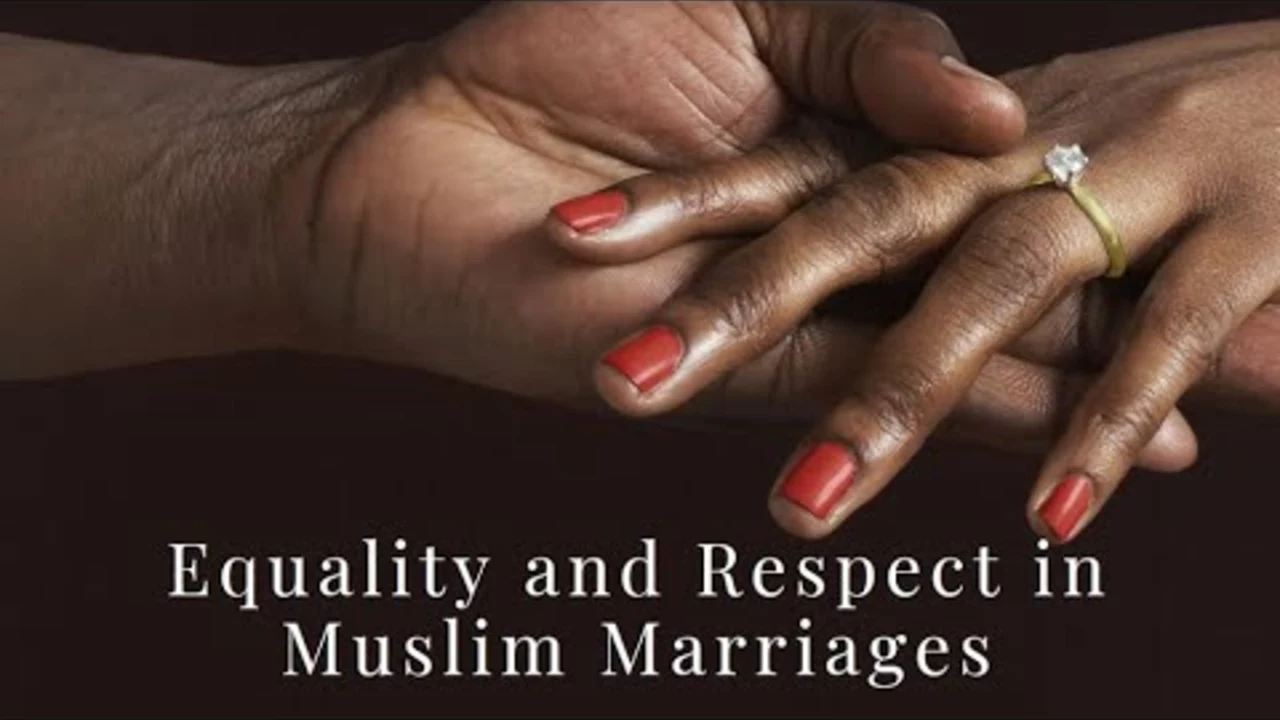Understanding Muslim Marriage and its Dynamics
Before we delve into the topic at hand, it's essential to understand the dynamics of a Muslim marriage. Islam, like other religions, values the institution of marriage highly. It's considered a sacred bond, not just between two individuals, but also between two families. It's a relationship based on mutual respect, love, understanding, and, most importantly, equality. The Quran - the holy book of Islam, repeatedly emphasizes the importance of equality and mutual consent in a marriage.
The Role of a Muslim Woman
When talking about the role of a Muslim woman in marriage, it's important to note that Islam grants women a high status and respect. The teachings of Prophet Muhammad (Peace be upon him) show that women are not inferior to men. They have equal rights to education, work, and decision-making. In a marriage, Muslim women are expected to be partners to their husbands, contributing to the welfare of the family and the upbringing of their children.
The Concept of Obedience in Islam
The concept of obedience in Islam is often misunderstood. Many people associate obedience with subservience and a lack of freedom. However, this is far from the truth. Obedience in Islam is based on mutual respect and love. The Quran encourages both men and women to be obedient to each other. It's not a one-sided obligation for women alone.
Are Muslim Women Supposed to be Obedient to their Husbands?
The simple answer to this question is yes, but it's not as straightforward as it seems. The term 'obedience' here should not be mistaken for servitude or unquestioning compliance. Instead, it refers to respecting the husband’s role as the head of the family, cooperating with him in managing household affairs, and respecting his decisions as long as they are in line with Islamic teachings.
What Does the Quran Say?
The Quran has clear instructions for both men and women in a marriage. It says, "And due to the wives is similar to what is expected of them, according to what is reasonable" (2:228). This means that the rights and responsibilities of both partners are equal and should be respected.
What About the Hadiths?
The Hadiths, which are sayings and actions of Prophet Muhammad (Peace be upon him), also emphasize mutual respect in a marriage. There are numerous Hadiths where the Prophet stressed the importance of treating women kindly and with respect. He also emphasized that men should consult their wives in important matters.
Misinterpretations and Cultural Practices
It's important to differentiate between Islamic teachings and cultural practices. Unfortunately, many cultural practices that oppress women are wrongly attributed to Islam. These practices, which often involve subjugating and mistreating women, are in direct contradiction to the teachings of Islam.
The Rights of a Muslim Wife
Islam grants numerous rights to women, especially when it comes to marriage. A Muslim wife has the right to be treated with kindness, to be provided for, to have her opinions heard, and to seek divorce if her rights are not being met. She also has the right to pursue education and work, and her husband cannot stop her from doing so.
Conclusion: A Balance of Rights and Responsibilities
In conclusion, the concept of obedience in a Muslim marriage is not about oppression or subjugation, but about a balance of rights and responsibilities. Both partners are expected to uphold their duties and respect each other's rights. This creates a harmonious and loving relationship, as envisioned by the teachings of Islam.






